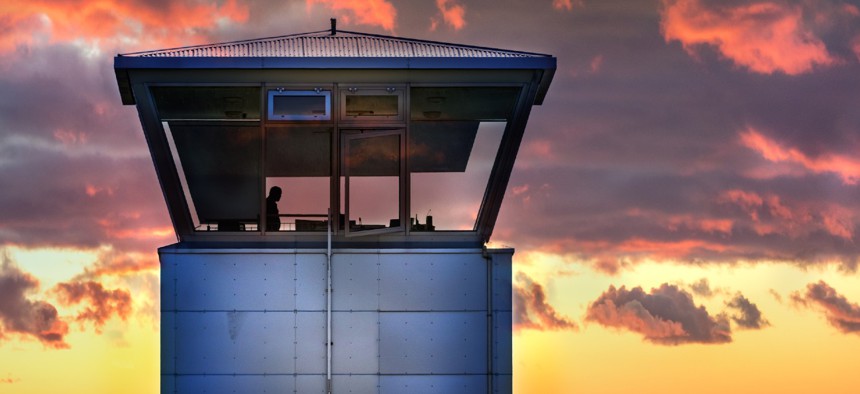
RUBEN RAMOS / iStock.com
House Panel Advances Bill Protecting FAA Operations During Shutdowns
Bipartisan legislation would ensure the Federal Aviation Administration operates at full capacity during a lapse in appropriations by drawing money from the Airport and Airway Trust Fund for up to 30 days.
A House panel on Wednesday voted overwhelmingly to advance to the floor for consideration legislation that would protect the Federal Aviation Administration and its employees from the impacts of a government shutdown.
The Aviation Funding Stability Act (H.R. 4042), sponsored by House Transportation and Infrastructure Committee Chairman Rep. Peter DeFazio, D-Ore., Rep. Bob Gibbs, R-Ohio, and 42 other lawmakers, would allow the FAA to continue operating at full capacity for the first 30 days of a lapse in appropriations by withdrawing money from the Airport and Airway Trust Fund, rather than from general appropriations.
During the 35-day partial government shutdown in late 2018 and early 2019, more than 17,000 FAA employees—roughly 40% of the agency’s workforce—were furloughed, including the vast majority of aviation safety inspectors, while 14,000 air traffic controllers were required to continue to work without pay, including mandatory overtime.
During a markup of the bill before the House Transportation and Infrastructure Committee Wednesday, DeFazio said those conditions were unacceptable, and threatened the safety of the nation’s aviation system.
“I talked to a lot of junior air traffic controllers, and they said they had to take outside jobs to make ends meet,” he said. “They were doing Uber outside of their shifts [at airports], and they were exhausted. This should not happen.”
Rep. Sam Graves, R-Mo., ranking member of the committee, said that although Congress must do a better job of averting shutdowns, it is dangerous to put air safety at risk because of lawmakers’ inability to strike a deal.
“I believe that Congress should fulfill its constitutional obligation to pass appropriations bills, but we also have to ensure that the national airspace system is running safely and efficiently for all users in the event of a government shutdown,” Graves said. “As it stands, the government is currently operating under a continuing resolution, so the possibility of a shutdown could confront us sooner rather than later, which the aviation system simply can’t afford right now in the middle of the holiday travel season.”
But Rep. Scott Perry, R-Pa., argued that bills that seek to minimize the negative impacts of lapses in appropriations actually make it harder for lawmakers to pass spending bills.
“This is yet another bill to put the government on autopilot and dilute congressional authority,” he said. “While shutdowns can have severe impacts on the aviation community, it is completely unacceptable to abandon regular order and the appropriations process. The more of government that we put on autopilot—no pun intended—the less reason we ever have to come to an agreement on funding packages.”
Democrats on the committee beat back multiple attempts to amend the bill to prohibit the FAA administrator from enforcing a vaccine mandate on agency employees, contractors and private airlines, by party line votes. The committee ultimately voted 58-5 to advance the bill to the House floor.
The bill has the support of more than two dozen aviation industry and employee groups, including the National Air Traffic Controllers Association.
“The legislation would protect NATCA members and ensure that FAA could continue to meet its mission by maintaining the safety and efficiency of the national airspace system during a lapse in appropriations,” said President Rich Santa, in a statement. “For many years, NATCA has advocated for a stable, predictable funding stream. This legislation would provide a temporary shield against destructive government shutdowns and protection for ongoing programs and projects that have to waste weeks preparing for potential shutdowns even when they are avoided at the last minute.”
The current deadline to approve all 12 annual appropriations bills is December 3. Congress must also raise the debt ceiling by that date, or the country risks a default.







